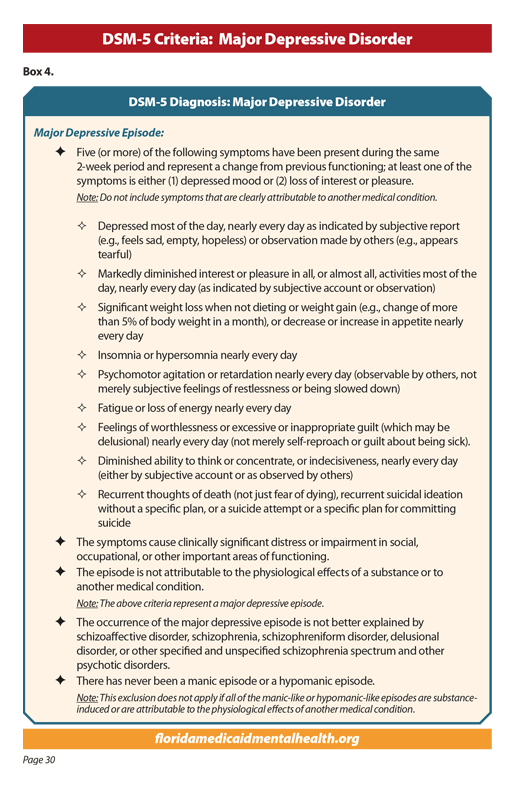2019-2020 Treatment of Adult Major Depressive Disorder

Summaries Downloads
Summaries Text
Convergent evidence from international studies indicates that Major Depressive Disorder (MDD) is one of the most common mental disorders affecting adult populations. Within the broader category of “non-communicable” chronic diseases (i.e., NCDs), MDD is associated with relatively higher rates of disability (e.g., impairment in role function) when compared to most other NCDs (e.g., diabetes mellitus) and is also associated with premature mortality of up to 10 years of potential years of life lost. In addition to being a highly disabling disorder, MDD is also a risk factor for several other NCDs (e.g., cardiovascular disease) and has been demonstrated to complicate health outcomes from conditions ranging from cardiovascular disease and diabetes to obesity.
Emerging evidence indicates that, in some cases, MDD exhibits a neuroprogressive process as evidenced by changes in brain structure, volume, and connectivity as a function of illness duration and episode frequency. This observation provides the basis for pressing the point strongly that screening for MDD should be paramount in clinical care settings that are likely to be utilized by individuals with MDD (e.g., primary care). The DSM-5 Field Trials sought to determine the interobserver agreement of the MDD phenotype. These trials reported a somewhat underwhelming kappa correlation coefficient of 0.28. Translationally, the foregoing finding comports with other lines of evidence that a large percentage of adults with MDD are either not diagnosed accurately and/or are receiving the diagnosis many years after observable characteristics of the illness appear.
Download Full Summary
Here is a comment
This is another comment about the comment above.
This is a new comment from a stranger.
Lorem ipsum dolor sit amet, consectetur adipiscing elit, sed do eiusmod tempor incididunt ut labore et dolore magna aliqua. Ullamcorper sit amet risus nullam eget felis eget nunc lobortis. Varius quam quisque id diam vel quam. Volutpat lacus laoreet non curabitur gravida arcu ac tortor dignissim. Justo donec enim diam vulputate ut pharetra sit amet aliquam. Pharetra sit amet aliquam id diam maecenas ultricies mi eget. Tincidunt arcu non sodales neque. In hac habitasse platea dictumst quisque sagittis purus sit. Porta lorem mollis aliquam ut.
Lorem ipsum dolor sit amet, consectetur adipiscing elit, sed do eiusmod tempor incididunt ut labore et dolore magna aliqua. Ullamcorper sit amet risus nullam eget felis eget nunc lobortis. Varius quam quisque id diam vel quam.
Volutpat lacus laoreet non curabitur gravida arcu ac tortor dignissim. Justo donec enim diam vulputate ut pharetra sit amet aliquam. Pharetra sit amet aliquam id diam maecenas ultricies mi eget. Tincidunt arcu non sodales neque. In hac habitasse platea dictumst quisque sagittis purus sit. Porta lorem mollis aliquam ut.